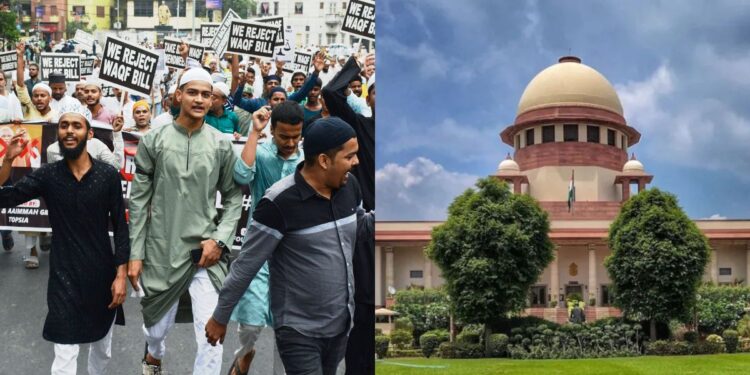Lagatar24 Desk
New Delhi: The Supreme Court on Tuesday witnessed heated arguments challenging the constitutionality of the Waqf Amendment Act, with senior advocates asserting that the new law undermines religious autonomy and imposes discriminatory conditions. Appearing for the petitioners, Senior Advocates Kapil Sibal, Abhishek Manu Singhvi, Rajeev Dhawan, and Huzefa Ahmadi raised concerns about the inclusion of non-Muslims in Waqf bodies and the controversial requirement to prove religious practice.
Not secular, but a religious endowment
Kapil Sibal argued that the creation of a Waqf is an inherently religious act and not a secular process. “These are mosques. Creation of Waqf is itself not secular. It’s a Muslim’s property dedicated to God,” he told the bench led by Chief Justice BR Gavai. He criticised the restructured Central Waqf Council under the new law, claiming that Muslims could become a minority within the body. “Control has been taken away from Muslims,” Sibal said, drawing comparisons with Hindu and Sikh religious institutions, where such inclusion does not exist.
Proof of religion raises constitutional red flags
Senior Advocate Singhvi criticised the clause that requires a person to have practiced Islam for at least five years to create a Waqf. “Who asks for proof of religion in a religious endowment? This is just to instill fear and create bureaucratic hurdles,” he said. According to him, under the new rules, any property could lose its Waqf status the moment a dispute is raised.
Challenging the idea of religious exclusivity
Senior Advocate Rajeev Dhawan called it unprecedented that religion is being redefined within a religious statute. “We are a secular nation. One of my clients is a Sikh who wants to contribute to Waqf. Should he be stopped from doing so?” he asked. Huzefa Ahmadi added that the criteria for identifying a ‘practicing Muslim’ could lead to intrusive questioning. “Will someone ask if I pray five times a day or drink alcohol—is that how religiosity will be judged?” he said.
CJI reminds of legislative presumption
Earlier in the day, Chief Justice Gavai noted that legislation passed by Parliament enjoys a presumption of constitutionality and the courts can only intervene if a clear and glaring constitutional violation is evident. The hearing on the petitions will continue tomorrow.
Background and government stance
The Waqf Amendment Act, passed last month, has triggered protests from several Muslim bodies, who allege that the law is aimed at encroaching on minority rights and Waqf properties. The government maintains that the amendments are meant to improve transparency, efficiency, and inclusivity in the functioning of Waqf Boards.







